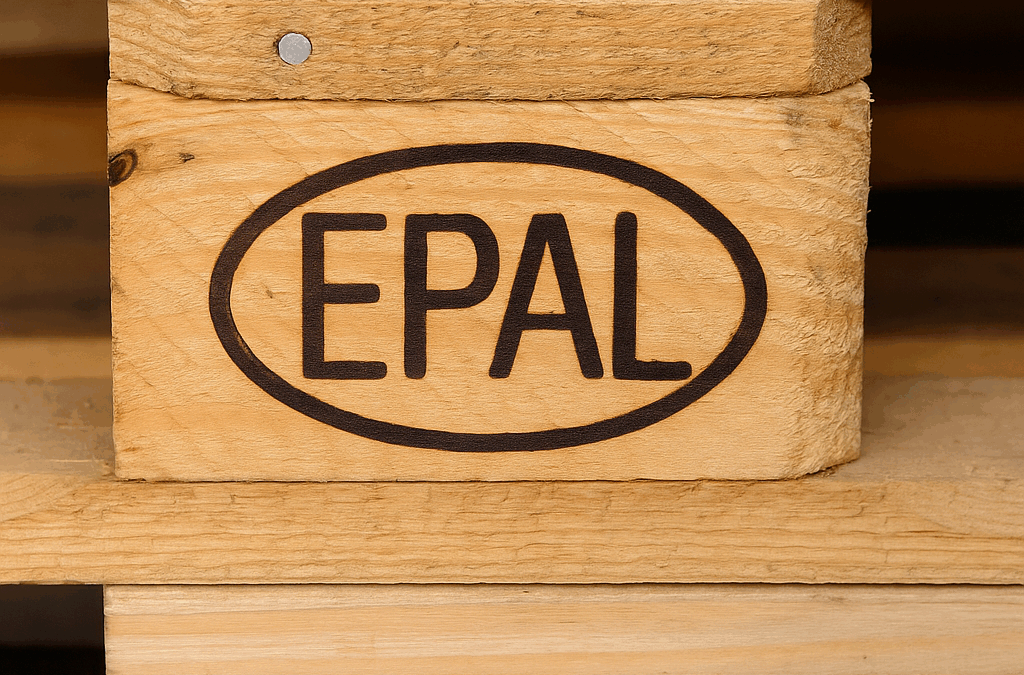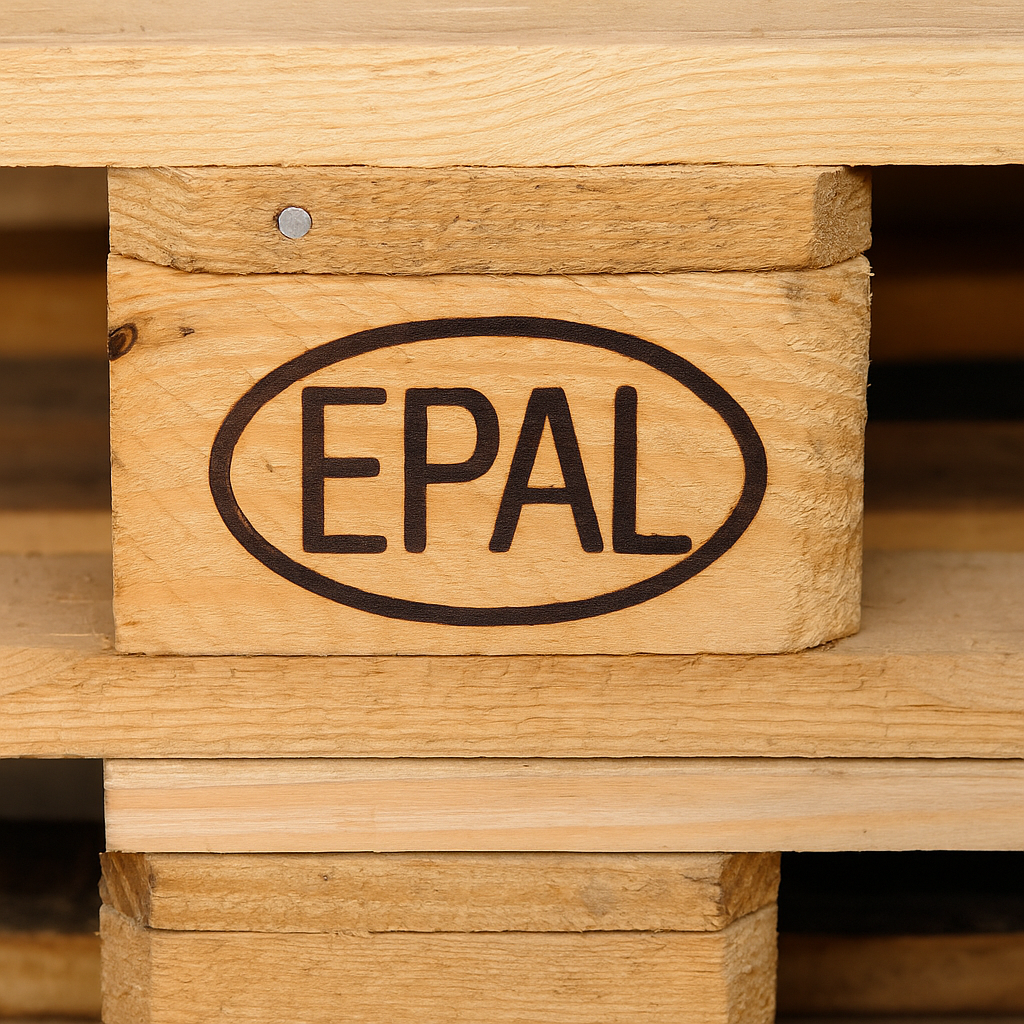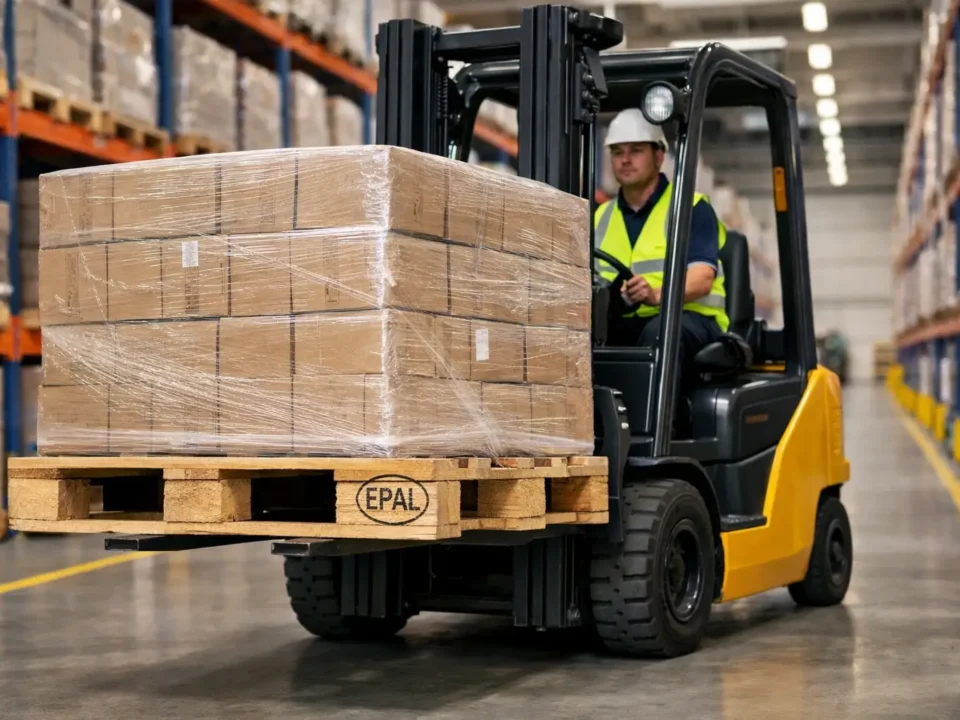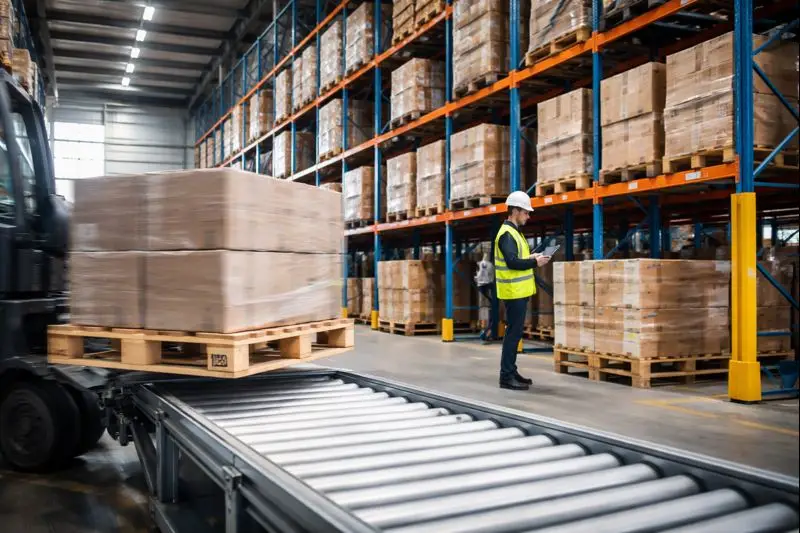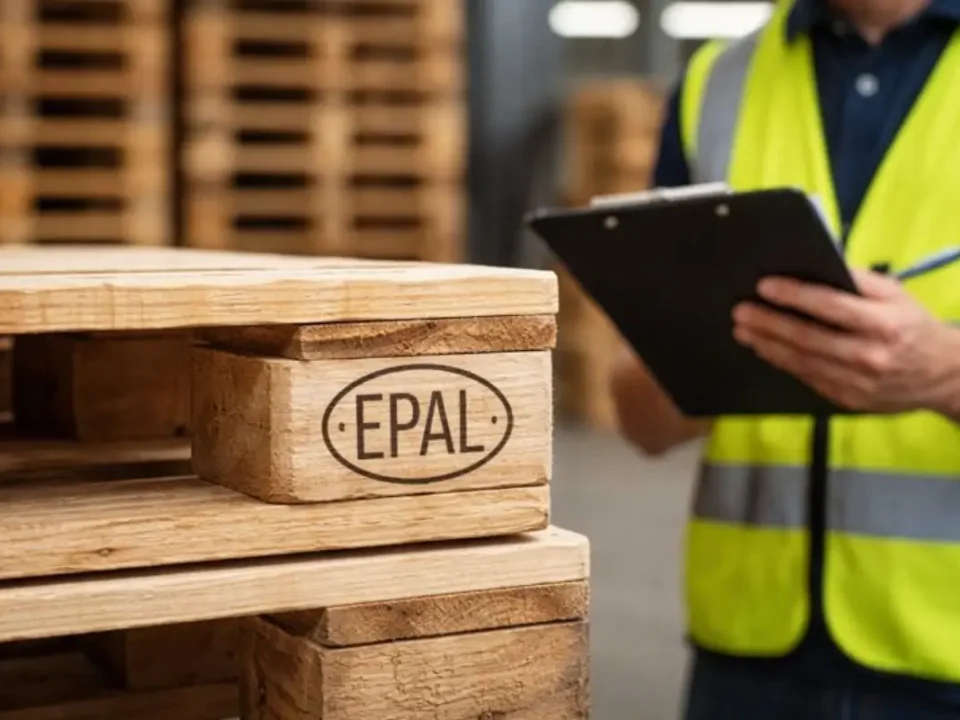
What Is an EPAL Pallet and Why It Matters in Global Shipping
May 15, 2025
Top 5 Benefits of EPAL Pallets in the Logistics Industry
May 28, 2025EPAL Pallets vs. Non-EPAL Pallets: What’s the Difference?
In global shipping, the type of pallet you choose can make a big difference. Whether you’re exporting goods, managing warehouse stock, or ensuring compliance with international rules, the right pallet matters. Among many options, EPAL pallets and non-EPAL pallets stand out as the most common choices. But what sets them apart?
This blog explores the differences between EPAL and non-EPAL pallets, helping you make the best decision for your logistics and supply chain needs.
What Are EPAL Pallets?
EPAL stands for European Pallet Association. EPAL pallets are wooden pallets built under strict global standards. Each pallet carries the official EPAL logo and follows specifications in size, weight, and strength. These pallets are widely accepted across Europe and many other countries for import/export.
Key Features of EPAL Pallets:
- Standard size: 1200 x 800 mm
- Heat-treated as per ISPM 15 guidelines
- Stamped with EPAL mark and treatment code
- Made with high-quality wood and nails
- Reusable, repairable, and trackable
EPAL pallets guarantee quality, safety, and international acceptance.
What Are Non-EPAL Pallets?
Non-EPAL pallets are wooden pallets made without EPAL certification. They may vary in size, material, and construction quality. Some non-EPAL pallets follow industry practices, while others are built for one-time use or local transport.
Common Traits of Non-EPAL Pallets:
- No fixed size or design standard
- May or may not be heat-treated
- No certification stamp
- Usually cheaper and lighter
- May not meet international shipping standards
While non-EPAL pallets are useful for local or temporary use, they lack the consistency and safety of certified pallets.
EPAL vs. Non-EPAL: Key Differences
| Feature | EPAL Pallets | Non-EPAL Pallets |
|---|---|---|
| Certification | EPAL Certified | No certification |
| Compliance | ISPM 15 compliant | May not comply |
| Size | Fixed (1200 x 800 mm) | Varies |
| Build Quality | High, standardized | Varies by supplier |
| Global Acceptance | Accepted worldwide | Limited |
| Reusability | High | Low to moderate |
| Cost | Higher (for quality and compliance) | Lower (but riskier) |
Why EPAL Pallets Are Better for Export
If you’re involved in international shipping, EPAL pallets are a safer and smarter choice. Their compliance with ISPM 15 means fewer customs delays. Their uniform size ensures compatibility with forklifts, warehouses, and container spaces. Plus, their durability means you can reuse them many times, reducing cost in the long run.
Many companies choose EPAL pallets to avoid penalties, ensure product safety, and streamline logistics.
When to Use Non-EPAL Pallets
Non-EPAL pallets work well in local or one-time use cases. If you’re shipping within a city, moving lightweight goods, or managing a low-budget operation, non-EPAL pallets can be a good option. But be aware—they may not pass customs checks or survive long-term use.
Making the Right Choice
If your goods move across borders, through ports, or into warehouses overseas, EPAL pallets are the clear winner. The initial cost may be higher, but the reliability, safety, and compliance they offer are worth it. On the other hand, for short-distance or temporary storage needs, non-EPAL pallets offer a budget-friendly alternative.
Want pallets that are durable, compliant, and ready for export? Explore our EPAL Pallets in Navi Mumbai.
Conclusion
Choosing the right pallet isn’t just about cost. It’s about quality, safety, and how far your goods need to travel. EPAL pallets stand for trust and global compliance. Non-EPAL pallets serve well in specific cases but may fall short when stakes are high. Choose wisely.
FAQs
1. Are EPAL pallets required for international shipping?
Yes, many countries require ISPM 15 compliance, which EPAL pallets offer.
2. Are EPAL pallets more expensive?
They cost more upfront but offer better durability and fewer delays.
3. Can I reuse EPAL pallets?
Yes. EPAL pallets are designed for multiple uses and easy repairs.
4. Do non-EPAL pallets follow any standard?
Not always. They vary by manufacturer and may lack safety or size consistency.
5. Where can I buy EPAL pallets?
You can buy certified EPAL pallets from our EPAL Pallets Service Page.

